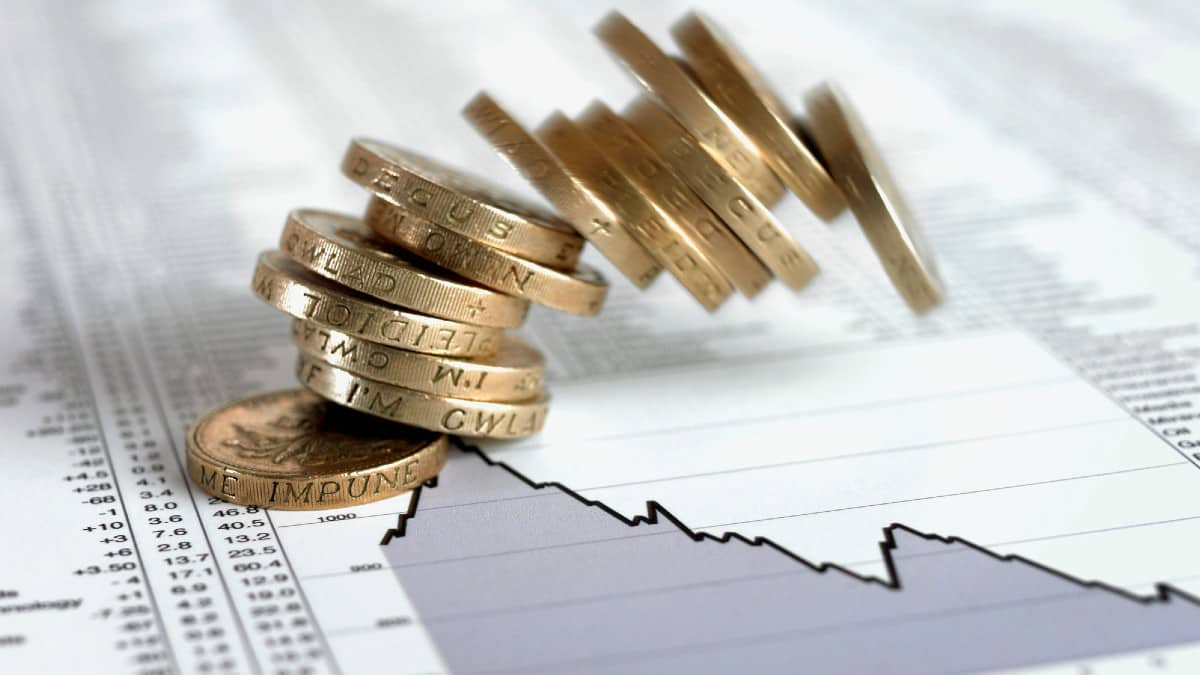High dividend yields are particularly attractive to investors seeking regular income from their stocks, though if the yield is way about the market average then be wary, as it might be a warning signal for potential issues or underlying risks.
Here, however, are three FTSE 100 companies — and one FTSE 250 constituent — that are well regarded by members of our free-site writing team, and comfortable exceed their indices’ average yield figure!
HSBC Holdings
What it does: HSBC is a global banking giant with a particular focus on Asia.
By Ben McPoland. Despite HSBC (LSE: HSBA) recently reaching a post-pandemic high above 700p, I still think the stock offers fantastic all-round value.
For starters, it is trading on an earnings multiple of around 7.5, which is cheaper than both the Footsie average and the bank’s international peers.
Second, HSBC has attractive long-term growth opportunities in Asia, where it is aiming to become the region’s leading wealth manager. I don’t think this ambition or potential is reflected in the current share price.
Third, the dividend yield is still 7%, even after the share price rise in recent months. Again, that is way higher than the Footsie average and its international peers. Plus, the firm announced a new $3bn share buyback.
Admittedly, its exposure to the slow-motion property meltdown in China is a worry. The nation is important to HSBC’s growth prospects, so economic weakness there isn’t ideal.
Nevertheless, I still reckon the stock is undervalued, and I intend to keep snapping up shares while ever this is the case.
Ben McPoland own shares in HSBC.
Legal & General
What it does: Legal & General is one of the largest asset managers and financial services companies in Europe.
By Charlie Keough. A solid proportion of my portfolio consists of stocks that provide me with income. One example is Legal & General (LSE:LGEN).
As I write, it yields 9.6%, the third highest on the Footsie. While that’s impressive, I’m more attracted by the actions the firm has taken in recent times to put more emphasis on rewarding investors.
For example, its five-year cumulative dividend plan is set to end this year. By then, it would have returned up to £5.9bn to shareholders.
Last year its payout rose by 5% to 20.34p per share. With plenty of cash on its balance sheet, I’m optimistic it will keep boosting its dividend.
Aside from the opportunity to make income, the stock looks cheap. It’s trading on 9.8 times forward earnings.
Of course, there are risks. Ongoing economic uncertainty could cause customers to pull their money. We’ve seen this in the last few years as its assets under management have wavered.
But for a business with strong brand recognition and a meaty yield, I think Legal & General shares look like great value for money.
Charlie Keough owns shares in Legal & General.
Taylor Wimpey
What it does: Taylor Wimpey is the UK’s second-largest property developer by market cap, and third-largest by property completions.
By Alan Oscroft. The Taylor Wimpey (LSE: TW.) share price has had a couple of false starts since the 2020 crash. And the latest, in late 2023, went off the boil.
The Bank of England’s higher-for-longer approach to interest rates started to turn investors away again as we moved into 2024. But in the past month, the price has begun to rise, and I wonder if this might finally be the start of a recovery.
As it is, we’re looking at a forecast dividend yield of 6.7% as I write. And that’s with forecasts suggesting a return to earnings growth in 2025.
On a price-to-earnings (P/E) ratio of 17 for 2024, the shares might look fully valued now. And that could mean further downturns in the coming year.
But looking at the long-term outlook for the UK housing market, I think the short-term risk could be worth taking for investors seeking long-term income.
Alan Oscroft has no position in Taylor Wimpey.
Taylor Wimpey
What it does: Taylor Wimpey is one of the UK’s largest housebuilders and a member of the FTSE 100 index.
By Paul Summers: As the housing market looks to be slowly regaining its mojo, I reckon Taylor Wimpey shares are attractive.
Aside from any capital gains that might be made if/when interest rates are finally cut and buyer confidence improves, the dividend stream remains enticing. As I type, the stock has a forecast dividend yield of 6.5%. For comparison, I’d get ‘just’ 3.5% if I buy a fund that tracks the index.
Sure, there’s a chance that Taylor Wimpey still struggles to meet analyst expectations on sales. With the FY24 payout already unlikely to be covered by profit, this could be bad news for income seekers.
But I’d only start to worry if there was evidence that inflation was going back up. Right now, this isn’t the case.
As part of a fully diversified, passive income-producing portfolio, the £5bn cap gets my vote.
Paul Summers has no position in Taylor Wimpey
TP ICAP Group
What it does: TP ICAP provides broking intermediary services to match buyers and sellers of different financial, energy and commodities products.
By Kevin Godbold. There’s a record of cyclical volatility in TP ICAP’s (LSE:TCAP) business and that adds risk. But earnings shot up in 2022 and have been growing since. City analysts expect single-digit percentage advances this year and next.
After plunging in the pandemic, the dividend has been surging back since 2021. It’s on course to exceed 2019’s level next year.
In March’s full-year report for 2023, the company said the outlook is subject to market conditions. However, the directors expect more volatility ahead, and that’s good for the firm’s global broking, energy and commodities businesses. Trading volumes will likely remain “solid” they said.
Meanwhile, with the share price in the ballpark of 224p, the forward-looking dividend yield is above 7% for 2025.
The enterprise is trading well, and I’m optimistic it will prove to be in a multi-year up-phase of its business cycle. Therefore, I’d consider the stock for an income portfolio now.
Kevin Godbold does not own shares in TP ICAP Group.
Credit: Source link













